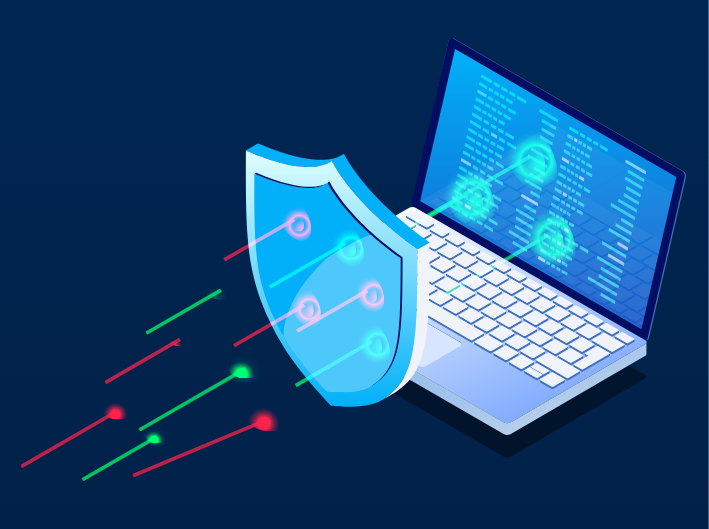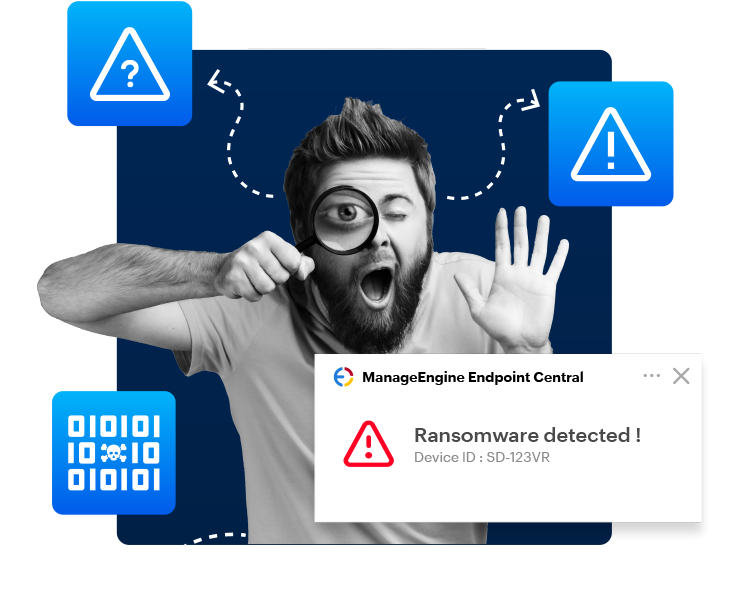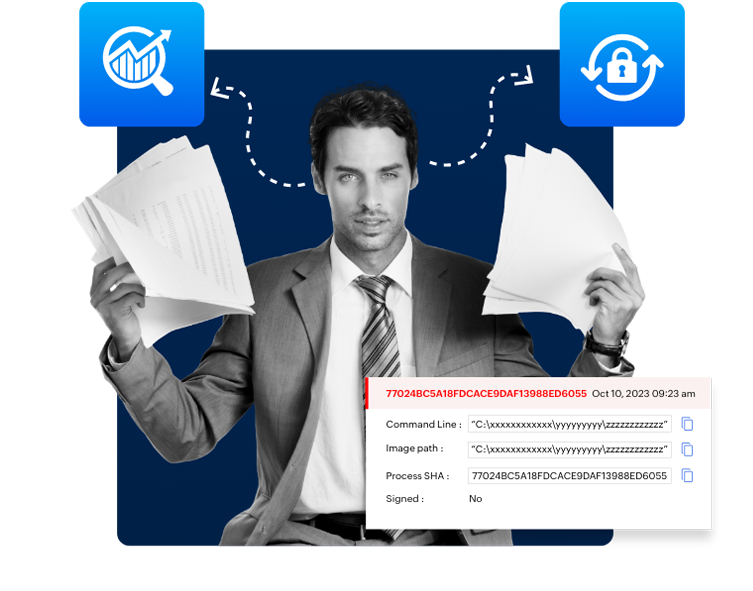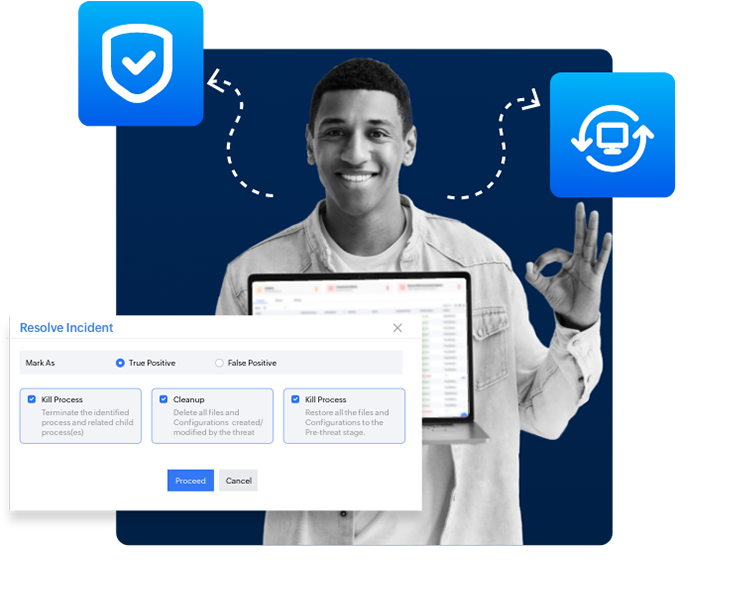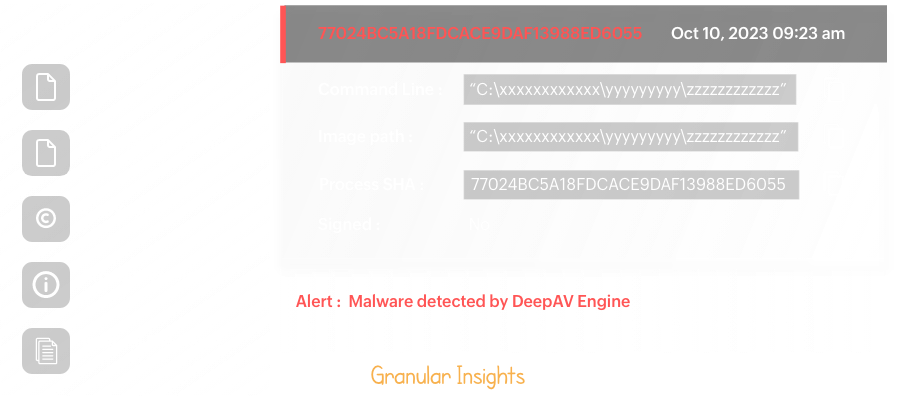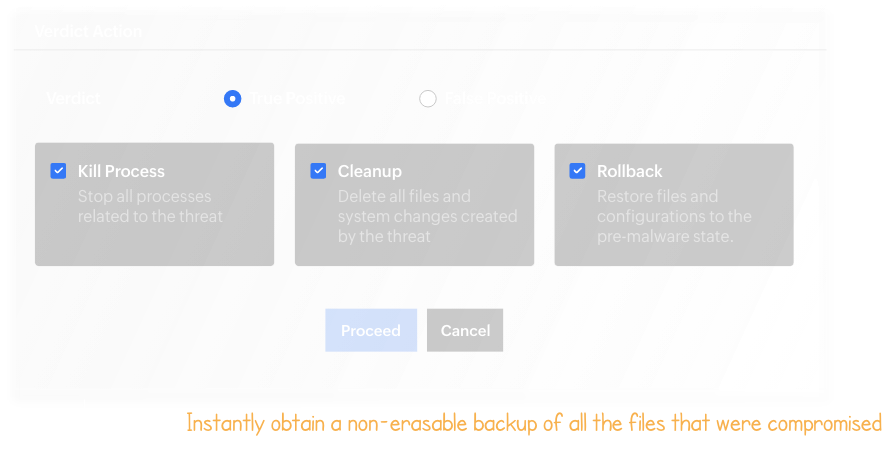Threat Detection
Our AI and ML supported malware detection mechanism operates in real-time, excelling at identifying both known and unknown malware, including fileless attacks. Continuous monitoring is maintained regardless of the device's online or offline status. Utilizing a hybrid approach that seamlessly combines static and dynamic detection methods, this system triggers instant alerts for timely threat response and protection.

